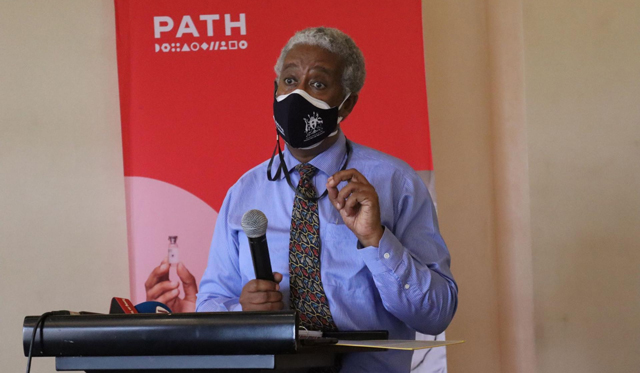
Kampala, Uganda | THE INDEPENDENT | Uganda is set to receive a hundred doses of a trial vaccine being developed to prevent the Ebola Sudan strain.
Dr. Tegegn Woldemariam, the WHO country representative revealed this on Thursday at a weekly WHO Africa press conference. He explained that there are two trial drugs being studied whose safety data has been obtained for the strain, but the country is set to receive one that is in more advanced stages.
The trial vaccine will be provided by the National Institute of Health (NIH) and the Sabin Vaccine Institute.
He said because the supplies are limited, the model being taken in the roll-out of this vaccine that is expected in the country in a week’s time, will only be used to vaccinate immediate contacts of confirmed Ebola Sudan strain cases. This is different from the Ebola Zaire vaccine where ring vaccination is done among high-risk individuals including health workers.
Woldemariam added that the vaccine may be available in a week since many of the necessary approvals have already been done.
Meanwhile, the country has recorded a cumulative 44 confirmed cases of Ebola where ten including health workers have since succumbed. Also, up to a thousand contacts of these cases are being followed up.
Dr. Jane Ruth Aceng, the Health Minister visited Mubende Regional Referral hospital on Thursday and reassured the country’s efforts to control further transmission are in high gear. She said eight people have so far been discharged although one refused to go back home because her two-year-old baby is still in isolation with active disease.
Aceng warns the public not to lose guard as infected people are still being freshly identified.
However, while Uganda has had other Ebola outbreaks before, this outbreak created a serious scare as up to eighteen other people are believed to have succumbed in the community before the first case could be confirmed. But even as this is so, Woldemariam told journalists at the conference that the country will not take extreme control measures as a lockdown had been feared.
Re-echoing what President Yoweri Museveni said last week that there will be no lockdown, he said efficient contact tracing and community engagement in identifying sick people can help them control the outbreak more than a lockdown which has disastrous effects on the economy.
*****
URN
 The Independent Uganda: You get the Truth we Pay the Price
The Independent Uganda: You get the Truth we Pay the Price





